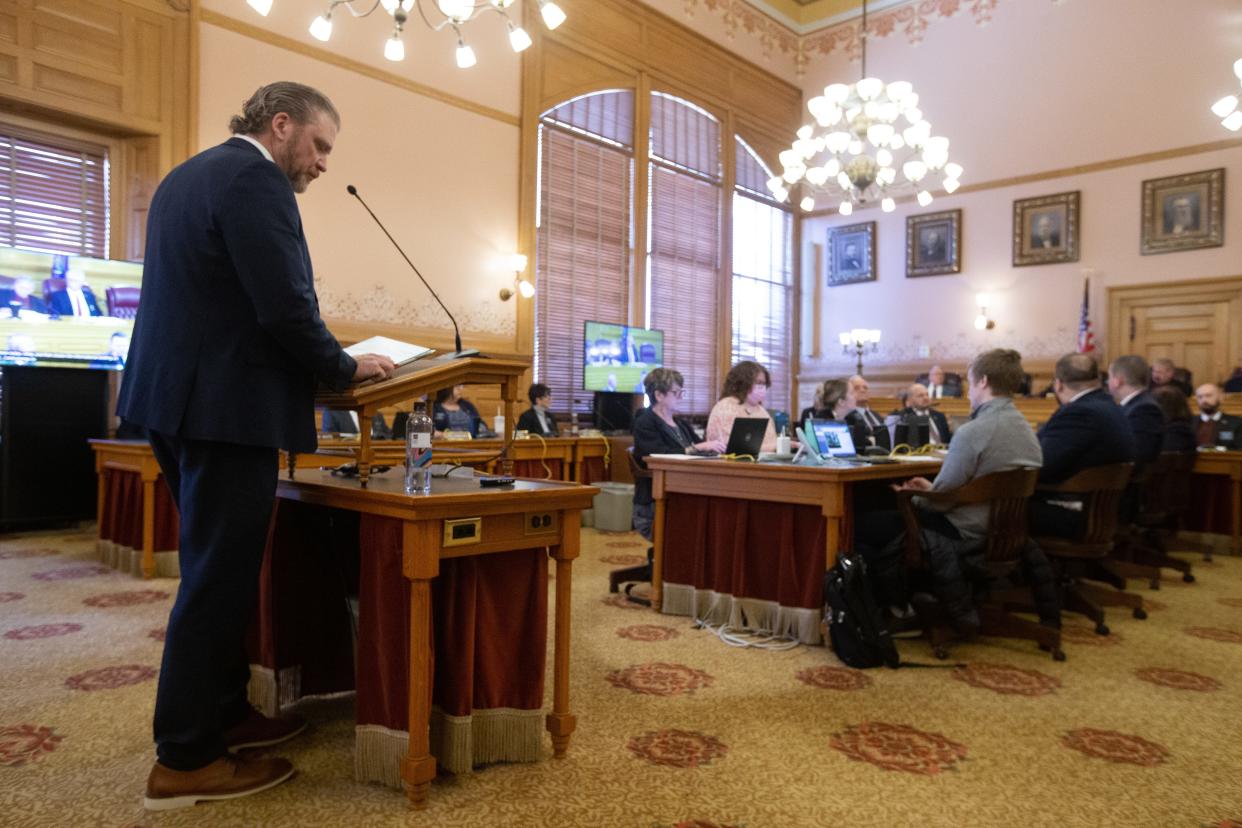Keystone Pipeline operator missed chance to address issue before Kansas oil spill: Report

More than 100 other points along the Keystone Pipeline use similar fittings to the one at fault for the December oil spill in north-central Kansas, a fuller review of the incident, made public this week, shows.
The spill in Washington County, where 12,000 barrels of crude oil flowed from the Keystone pipeline into Mill Creek, is the largest spill in the pipeline's history, as well as the largest onshore oil spill in years.
An outside analysis of the event conducted by an Ohio firm and posted by the Pipeline and Hazardous Materials Safety Administration this week says TC Energy, the pipeline operator, missed opportunities to address a faulty bend in the pipeline system.
The report noted that "the most likely scenarios to have caused such a large bending stress were loads applied during construction" of the section of the pipeline that runs through several north-central Kansas counties.
The fitting at issue was a replacement for a previous part that had shown signs of corrosion, but while the welding was up to standards, the report said the workmanship "was not sufficient for the higher stress" caused by the pipeline design.
The report said TC Energy underestimated the risk of an oval-shaped deformation in the fitting occurring and that it did nothing to address or investigate the deformation when excavating the site in 2013.
108 Keystone sites use similar fittings to one that failed in Kansas oil spill
Ultimately the core root causes of the spill were "gaps in company standards, policies, and administrative controls" for designing the bend, as well as shortcomings in construction that created significant stress on the pipeline, according to the report.
There are 108 sites in the Keystone system that use fittings similar to the one in Washington County, with TC Energy saying last month in a response to the report that it was investigating and excavating sites with characteristics that mirror the spill site.
TC Energy announced last week that it had finished recovering oil from Mill Creek, though remediation of the surrounding land is expected to continue. The oil, extracted from the tar sands of Alberta, Canada, is diluted bitumen, a type of crude that is considered more difficult to fully clean up.
In a report to shareholders, TC Energy said the full cost of cleaning up the spill is expected to reach $650 million, though it says insurance has already covered $102 million of the costs incurred to date.
TC Energy spokespeople didn't immediately return a request for comment but a statement released last month said they are "unwavering in our commitment to fully remediate the site and are taking action on the recommendations" from the report.
"We will not stop until we have completed this work," Richard Prior, TC Energy's president of liquid pipelines, said in late April. "We safely restarted the Keystone System in December 2022 and remain confident in its reliability as we deliver the energy the continent relies on."
Kansas legislators say questions over oil spill still remain unanswered

Meanwhile, legislators say they are still awaiting answers promised by TC Energy's representatives during a hearing on the spill earlier this year.
A company spokesperson said in an email that the Canadian firm had followed up with lawmakers who had unanswered questions from the meeting to provide the requested information.
But three of the four legislators who had unanswered questions following the hearing said they had heard nothing from the company. A fourth could not be reached for comment.
Rep. John Carmichael, D-Wichita, noted that it was rare for a company or agency to decline to provide information to the Legislature when asked to do so, with most presenters complying without any need for follow up.
"The time is now long overdue for TC to live up to, as they described it, transparency," he said.
Rep. Jerry Stogsdill, D-Prairie Village, reported he had not heard back on his search for greater details on the pipeline's engineering as it runs through south-central Kansas, where there has been an increase in seismic activity in recent years.
"There were a lot of questions I still had," he said.
This article originally appeared on Topeka Capital-Journal: Kansas Keystone Pipeline oil spill stemmed from design flaws

